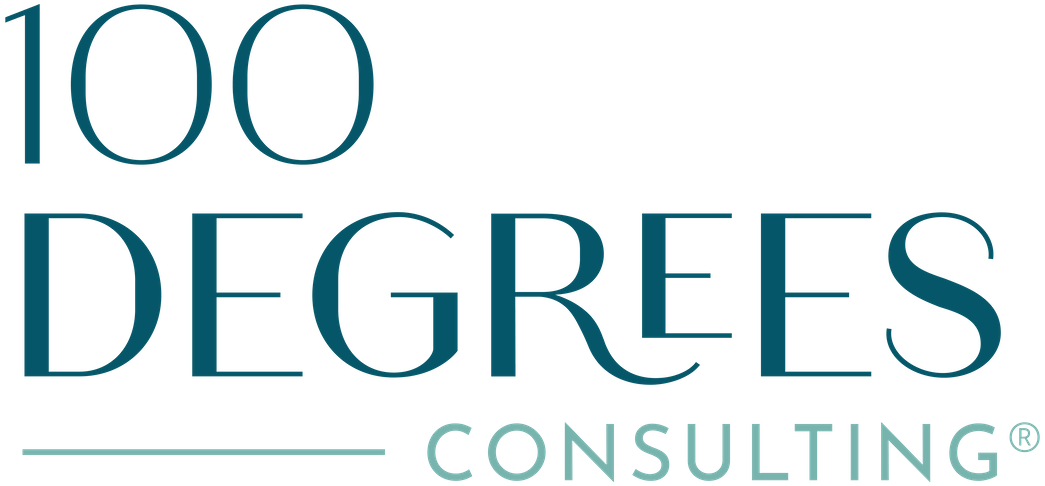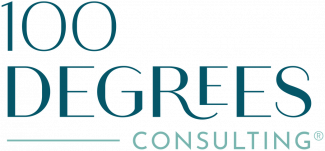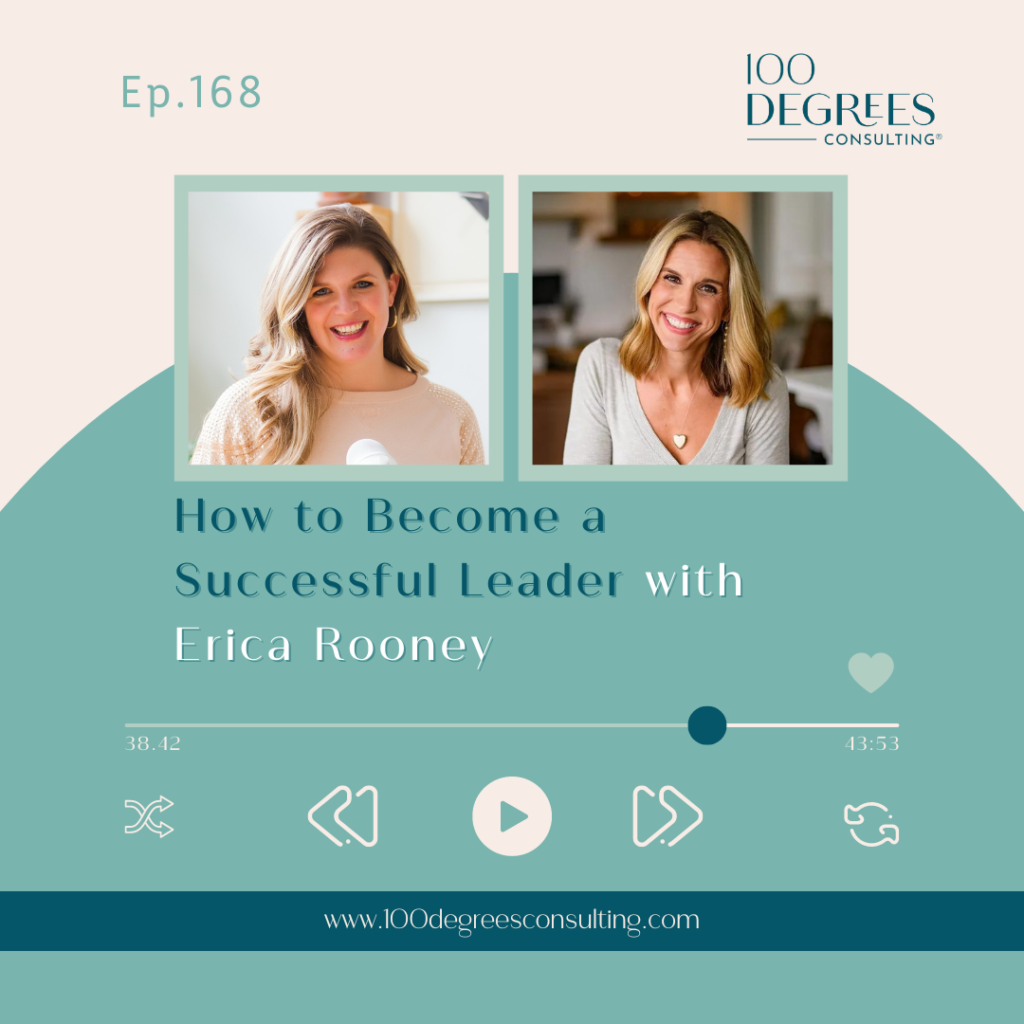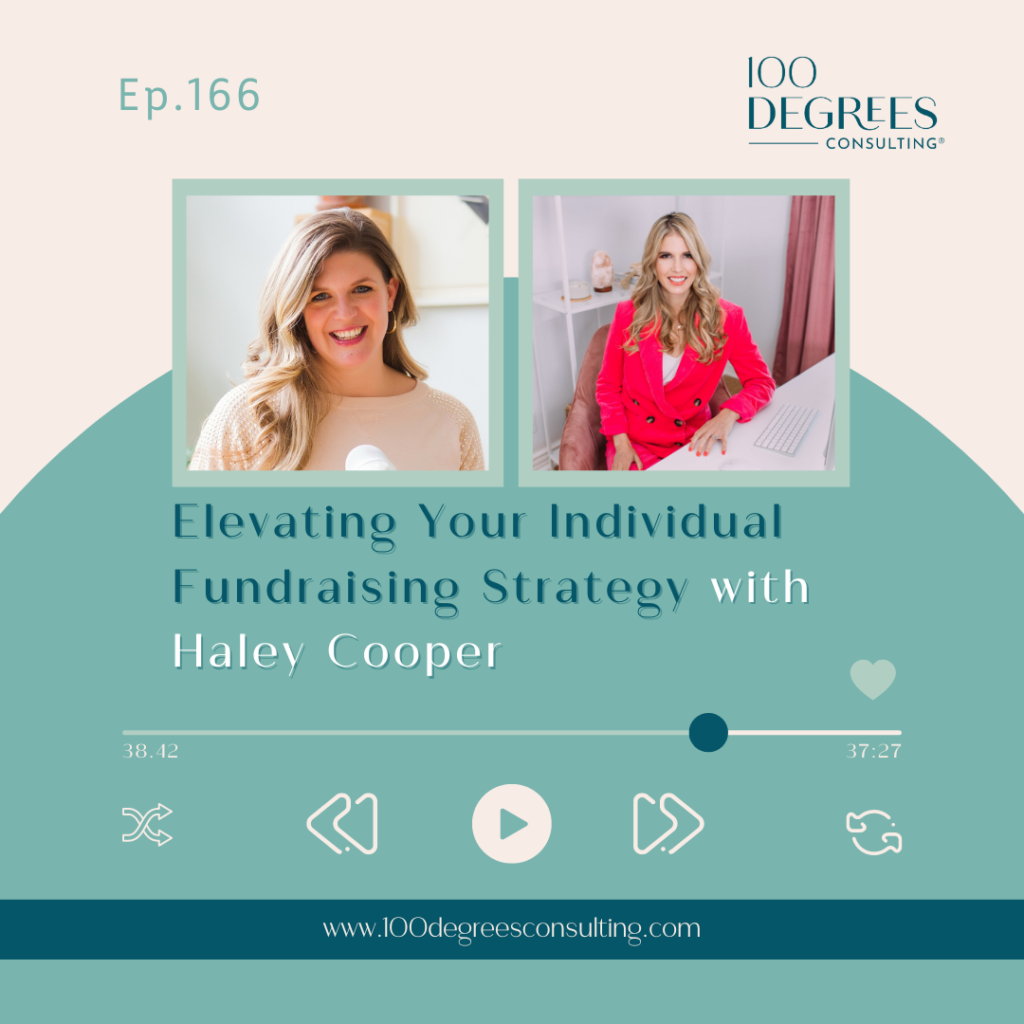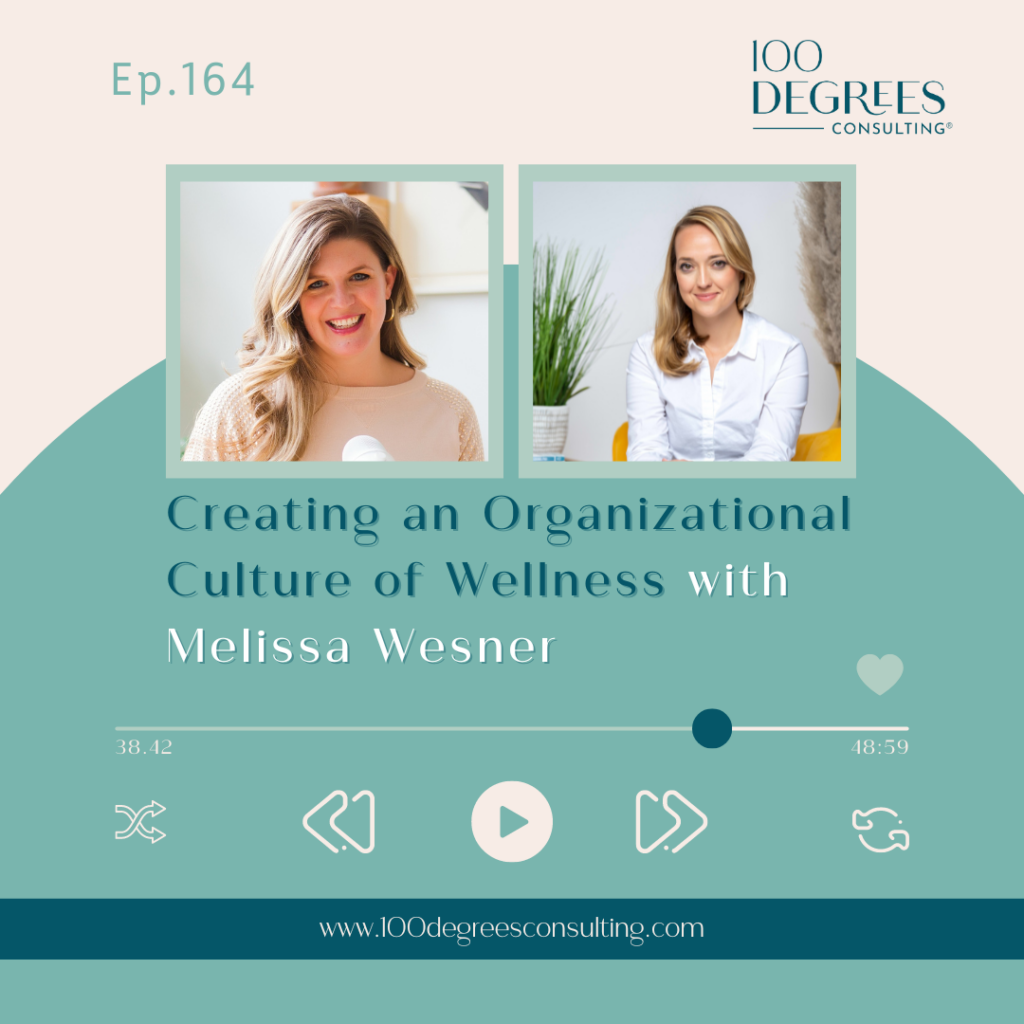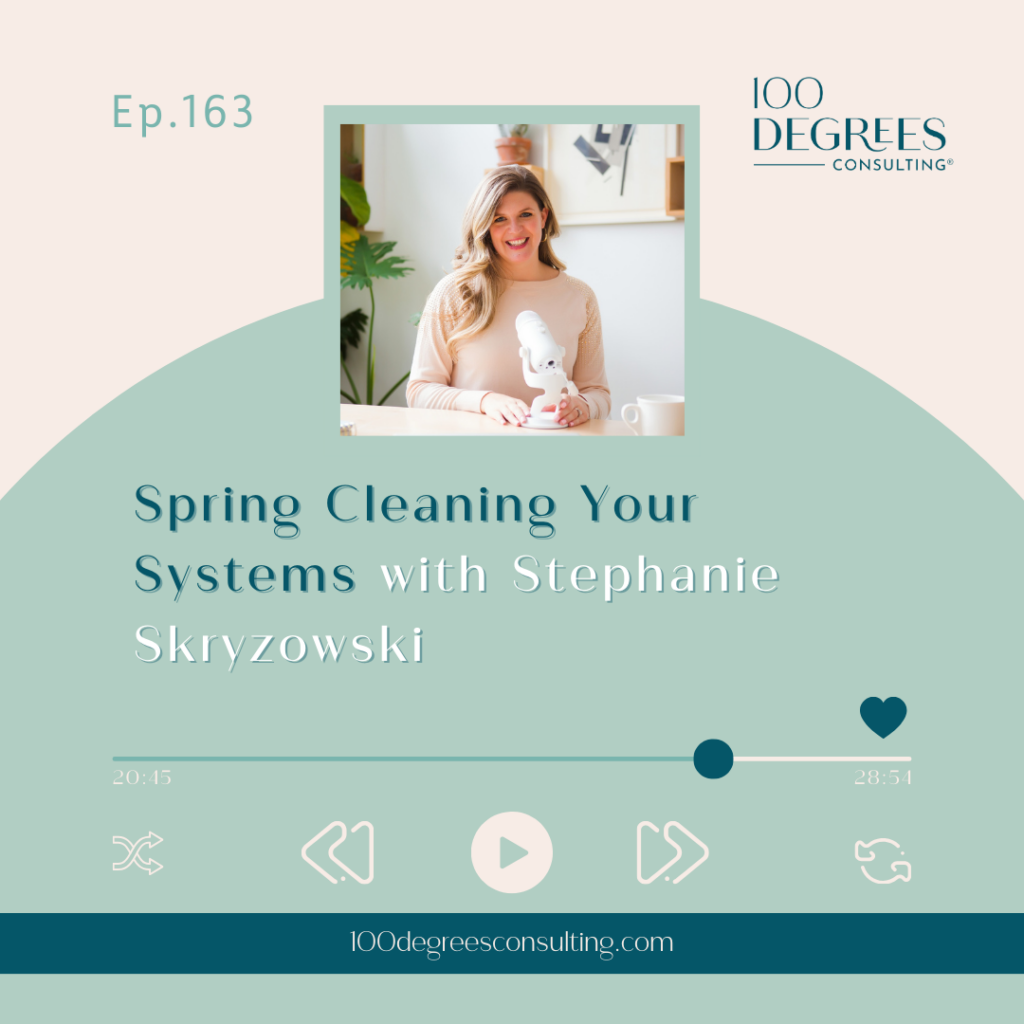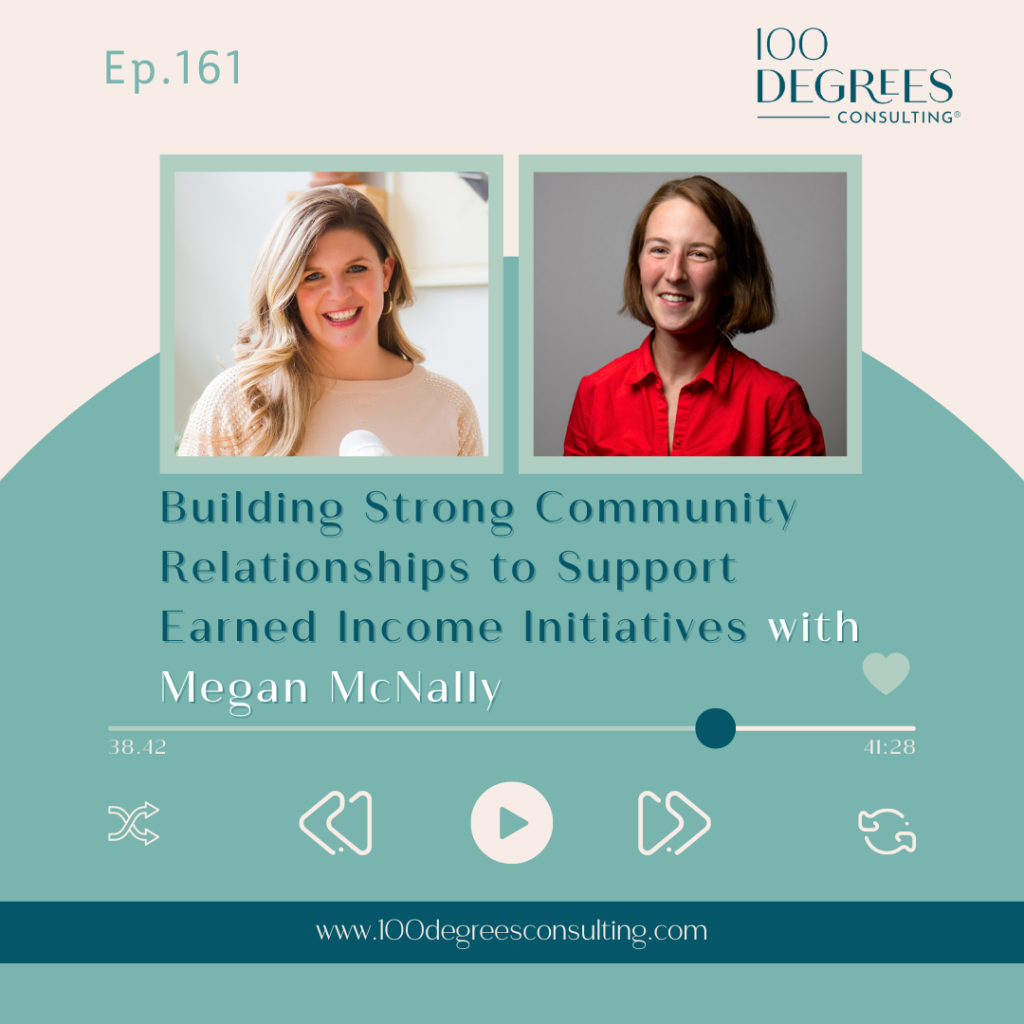Transcript Episode 14: How a Multi-Passionate Entrepreneur Built Her Business
Transcript Episode 14
Stephanie Skryzowski:
Welcome to the 100 Degrees of Entrepreneurship podcast. The show for purpose driven entrepreneurs who want to get inspired to step outside of your comfort zone, expand it to your purpose, and grow your business in a big way. I’m your host, Stephanie Skryzowski, a globe trotting CFO, whose mission is to empower leaders to better understand their numbers, to grow their impact and their income. Let’s dive in.
Hello, hello everyone. Welcome back to the 100 Degrees of Entrepreneurship podcast. I am your host, Stephanie Skryzowsky, and I am so excited to have my friend Kari Roberts on the show today.
Kari Roberts is a business coach and online business manager for creative, small business owners. She helps them figure out time management and systems that allow them to grow their business, while still having enough time and energy for work, business, and home life. Kari knows all about being a multi-passionate entrepreneur. She has been working as a physical therapist for 17 years, a freelance makeup artist for nine years, and a business coach, online business manager for three years. She’s been a featured speaker for the Creative at Heart Conference, 2021 Planathon, HoneyBook as well as multiple virtual summits. She’s also the host of the Finding Freedom with Simple Systems podcast and the creator and host of Overwhelmed to Organized The Summit. When she isn’t being a serial helper through one of her businesses, she enjoys watching sports with her husband, walking in the park with her two dogs, listening to podcasts, sampling tasty bourbons, and catching up on reality TV.
Kari and I had such a good conversation today. So many great laughs and just a really enjoyable conversation, but she dropped so many nuggets of solid gold that I actually have notes where I quoted her. I love that she is a multi-passionate entrepreneur. That’s one of the things that just really sticks out to me about Kari. One of the biggest nuggets of wisdom that she dropped was that you can do more than one thing at a time, but you can only grow one thing at a time. I thought that was just so powerful and just really encouragement that you can do things that you’re passionate about, even if they are different. You can do more than one thing.
Give a listen to the episode. I think you’re going to love it and I will see you at the end. Enjoy.
Hey, everybody. Welcome back to the 100 Degrees of Entrepreneurship podcast. I am so excited to be here with Kari Roberts. Kari, welcome.
Kari Roberts:
Hi, thank you so much for having me, Stephanie.
Stephanie Skryzowski:
I am so excited to chat with you today because you are a multi-passionate entrepreneur. I just absolutely love all the different pieces of your business because they’re so diverse and so interesting, yet they’re all woven together. Tell us a little bit about your business and where you are now and what you do and the journey that it took to get you here.
Kari Roberts:
Okay. I’ll start with the short, short version. For regular work, I guess, I do physical therapy part-time. My other part-time job, which is my business, I am a business coach to online creatives, as well as an online business manager. That’s my part-time job working for myself. Then I’m a freelance makeup artist and yeah, that’s the short version.
Stephanie Skryzowski:
I love that there is a balance of creativity and artistry with the makeup side and then very much systems and frameworks and all of that stuff with the OBM side. Do you feel like that represents you as a person? Do you feel like you’re really strongly type A or what’s the other types? Type A or the other type-
Kari Roberts:
I think Type B. I think it’s Type B. I really identify as being Type A and I remember being in college when personality tests were… I was being an exposed to them. Right brain versus left brain and things like that. I would always test down the middle and I always told myself it was because I’m ambidextrous of which I have no idea if that means anything. But I’ve always been half and half or part and part. As a physical therapist, everything is very black and white and very structured. It’s science based and evidence and blah, blah, blah. I enjoy that and I love the interactions with people, but I found myself wanting to be creative. So I got into the whole makeup world. Then when I was helping people with makeup, then I was being asked from other makeup artists to help them with their business. Because I was doing makeup as a side hustle and so they were trying to ask for that.
I’m always looking for the next best idea. My dad’s an entrepreneur, so I think it just runs in my blood. I’m like, “Well, I can help other side hustlers to be successful,” which meandered me back over to business coaching. But the other part is I’m greedy. I really enjoy doing makeup and I really enjoy the business aspect and I really enjoy the therapy. At this stage in the game, it’s like a pie and I have little wedges carved out for each thing. But it’s like we’ve got a good homeostasis where I can have it all at the same time, if you will.
Stephanie Skryzowski:
Yes, I love that. That’s really interesting because I feel like a lot of times the general advice out there is you have to niche down, you have to do one thing with one offer and serve one person and that’s it. I think it’s really interesting that your business is really serving both sides of your brain and sides of the person that you are. What advice do you have for other really multi-passionate entrepreneurs that feel like they’ve got really two very disparate, distinct interests, but they really, really want to pursue both of them? It’s really in the pursuit of both of them that they’re going to feel most fulfilled. Because I would imagine that if you’re just doing one or the other, something wouldn’t sit right. I would imagine maybe you wouldn’t feel quite so fulfilled if you just went all in on one thing.
Kari Roberts:
That’s true, that’s true. Well, the advice I would give is you can do more than one thing at a time, but you can’t grow more than one thing at a time. My business coach, he always says, “You can only drive one car at a time so figure it out.” Now, I’ve been a freelance makeup artist for over eight years now. I was doing that for years before I decided to dabble into business coaching. I was a physical therapist for years before I dabbled into makeup. I wouldn’t say try to do it all. But if you see that you have a desire, the Type A in me, the planner in me says, “Try to prioritize and get good with one thing and get in a good rhythm and see if you have the margins and the space to make room for the other things.” Because if you try to do them all at the same time, nothing’s going to get off the ground. Then also, none of us are Beyonce. She’s actress/songwriter/entertainer/the singer and we’re not that.
So if you’ve got all of these different passions, the other thing I would say is sit with yourself and figure out what is the commonality? Because when people say, “Oh, makeup artist, physical therapist, business coach, this child, she has no idea what she’s doing.” I know that whatever hat I’m wearing, I am helping you. I love being a helper. I call myself a serial helper. That’s the connection that will allow people to understand I’m probably not really flighty. I actually have multiple interests. Try to find what that thread is and then talk about that thread often. I love to help people. I love to help people. So when I’m talking about makeup, I’m helping people look beautiful for their weddings. I’m helping people look beautiful for a photo shoot. Business coaching, I’m helping you overcome some mental blocks. I’m helping you strategize. It won’t seem so abstract.
Stephanie Skryzowski:
I love that. Yeah, figuring out what that common thread is and then talking about it so other people can see that as well. I love that. I wrote down what you said, that you can do more than one thing at a time, but you can only grow one thing at a time. Because there’s a pretty big difference there. I feel like right now you’re probably working on growing more of the OBM, the online business manager side of your business. Where you’re still doing the makeup, but that’s not your primary focus to grow and scale that piece of it. That’s a really interesting differentiation for anybody who is listening that you’re like, “Oh, I really like all these different things.” Great. Do a couple things, find that common thread and then focus on one to grow at a time. I love that.
Kari Roberts:
Yeah, and we don’t have to monetize everything either. I have hobbies outside of makeup and business coaching that is purely a hobby. I love to bicycle, I really love photography actually, but those are things I do purely for fun. I think as entrepreneurs, especially when you’re creative, sometimes we feel like, “Ooh, I can make a business out of this. Ooh, this would be a really great service.” But you’ve got to reserve certain things just for you so that it is still fun.
Stephanie Skryzowski:
Oh, my gosh you’re calling me out right now and you don’t even know it. I was just recently thinking like, “Wow, I actually have no hobbies except for my business,” and so I picked up this hand lettering, calligraphy type book. Then as I was doing it last weekend, I’m like, “Ooh, I wonder how I could sell this or something?” No, no, no, no. I don’t need to do that. You’re right. Sometimes we just need something just for ourselves.
Kari Roberts:
Yeah, uh-huh (affirmative), yeah.
Stephanie Skryzowski:
On this journey, as your work has evolved, have you ever hit a point and maybe a pivotal point especially, where you were really pushed outside of your comfort zone and you were like, “Ooh, in order to get to that next level, in order to do this next thing, I’ve got to make myself really uncomfortable.” Have you ever had a situation like that before?
Kari Roberts:
Yeah, the first thing that comes to mind, I’ve had a couple. The first thing that comes to mind was on the makeup front, I didn’t like that people were charging $200 and $300 to do your face. I live in the Atlanta area and there’s some really high class makeup artists here. There’s a lot of online reality shows here. They call it the Hollywood of the South, some people do. All of that industry and I’m like, “I don’t want to be one of those industry people.” I didn’t realize that at the time, but I was really being budget friendly and I was not enjoying the clients that I was working with. A mentor at the time, because she was helping me with pricing because this is when I was learning about goals and financial goals and stuff. She’s like, “In order to get where you want to be, you’re going to have to charge more money.”
And I really struggled with that. Charging more money to attract the clients that I wanted to serve. I struggled with having a higher rate more than $60 or $70. I struggled with was my service worth that much? Were people going to think I was overcharging? I would talk about it with friends and family and they were like, “You’ve got to be kidding me.” A lot of like, “Can I do it? If I do it, will I make the money? Will people value me?” I did raise my prices because I’m a good student. It’s like, “If I invest and you tell me to do something, I’m going to do it.” I raised my prices, but I was extremely uncomfortable for a very long time. It was months before I was able to get comfortable. Once I was comfortable with the price that I was charging, that was when all those changes in the ideal person and everything came. But it didn’t come until after I got comfortable with the price.
That was my first bit of realizing I had mindset issues because I was a really good student. To become a physical therapist, you had to be a really good student. Study hard, pass the test, study hard, pass the exam, do good on your interview and you have a job. So to be put in a space where it was not passing a test, how do I validate that I’m worth what I’m charging because I don’t have a degree that says it, or I don’t have this grade? But learning how I was worth it, once I realized that was a struggle of mine, that’s something that now… I know I went on a segue, but now I’m aware of that and I do try to actively work on my mindset because it’s been huge in my entrepreneurial journey.
Stephanie Skryzowski:
Yeah. Oh, my gosh, that’s so huge. I feel like that is particularly a foundational lesson and concept that I can imagine you’ve probably applied to other pieces of your business as you’ve grown, as well.
Kari Roberts:
By the time I got to the business coaching aspect and the OBM work, now I just am like, “I’m scared,” but I just do it anyways. Whereas before the fear used to paralyze me, now I’m like, “It’s either sink or swim buddy.” I’m not going to die so we’re just going to go.
Stephanie Skryzowski:
Yeah. Do you think that fear was rooted in some scarcity mindset? Like, “Okay, if I charge $200 for the service and this person says, ‘No,’ there’s going to be no more clients?” Because I think about myself and that was definitely the biggest thing for me. It was that scarcity mindset. Do you think that’s what the fear was rooted in?
Kari Roberts:
Yeah, totally. I’m like, “I only need four people if it’s $65,” and then it’s like, “But if you charge $100, you only need two.” So the scarcity mindset has come up time and time again, yes.
Stephanie Skryzowski:
Yeah, I think about it now and as I’ve grown in my business too and raised prices and all of that good stuff, I feel like at least with the pricing side of things at this point, I’m like, “Okay, you know what, if they don’t accept my price, then they’re probably not the best fit anyway and let’s just move on.” That was not the case five years ago when I started. I was terrified and if I felt like they were not going to accept it, I would just lower the price. That’s not what we want to do at all.
Kari Roberts:
I know, and then we start thinking for them. I have a friend who a client now. She’s always saying like, “We have to educate them and help them make the decision. We don’t make the decision for them. If they don’t book you, they’re in indecision.” I’m like, “Girl, what do you mean? They haven’t booked yet?” But to me it was either they paid or they didn’t pay. Well, let me sweeten the deal. Then to learn that some people are not motivated by money, so you could cut your price, which hurts you, but they were going to probably pay the higher price anyways. But we had no idea because we lowered it before we got to that point.
Stephanie Skryzowski:
Oh, my gosh. That’s such a good point that I’ve not really thought of before. You’re right. Money is not an issue for everybody in the same way. So by us lowering our price, we might be trying to solve a problem that’s not really even a problem.
Kari Roberts:
Right, right.
Stephanie Skryzowski:
Very interesting, I like that. I’m going to remember that one. That’s good. Because I still struggle with it especially when it comes to pricing new things or a new scope of work or a new type of client. I still struggle with that. Like, “Oh, is this the right price? Oh, let me just knock a couple $100 off.”
Kari Roberts:
I know, I know. We don’t know and that’s the thing about being an entrepreneur. You don’t know. That’s where I’m at today taping. This could change tomorrow, but where I am now is this is my price. Either it’s going to sell like hotcakes and I under priced it, so I have to raise it up or it doesn’t sell at all and now I’ve got to figure out, was it the price? Was it the timing? Was it the offer itself? It’s not always the price.
Stephanie Skryzowski:
No. As a Type A person, do you feel like that guessing game of entrepreneurship, is that sometimes a challenge for you?
Kari Roberts:
Oh, yeah. Yes.
Stephanie Skryzowski:
Yeah?
Kari Roberts:
Yes, it’s very much an emotional roller coaster, yeah. There is a part of me that enjoys the ride, but there is another part of me that’s like, “I really just want to know. Can we take all the guesswork out of it? Just let me know what it’s going to do.”
Stephanie Skryzowski:
Yeah, I’m asking because you’re right. How you were just saying like, “Oh, maybe it’s the price. Maybe it’s the offer. Maybe it’s this.” I’ve experienced the same thing in my business. For a Type A person as well, I’m often like, “Oh, I wish there was just a checklist and a framework that if I just do one, two, three, I know what the result is going to be.” Like you were saying with your physical therapist tests, you know that if you answer the questions right, you’re going to pass and then you’re going to get a job.
Kari Roberts:
Right.
Stephanie Skryzowski:
Yeah, it’s not so clear cut and that can often be challenging for people like us that like to operate within a framework.
Kari Roberts:
Yeah, but then at the same time, when you hit it, it’s that sense of pride and joy. It’s so much deeper than when you just followed the course.
Stephanie Skryzowski:
Yeah, that’s so true. If anybody listening is feeling in that struggle of not knowing what the right thing to do is, you will figure it out, number one. And number two: the reward after you figure it out will be beyond.
Kari Roberts:
Yes.
Stephanie Skryzowski:
You hear me talk all the time about how important it is to know your numbers as a business owner. But you may be thinking, “Well, how in the world do I do that? Where do I even begin?” I have a free resource for you. The Profit Playbook is an amazing template that you spend about 15 minutes getting it all set up and you can literally see into the future of your business revenue expenses, cashflow, just like a crystal ball. It is a huge resource that will absolutely help you create a roadmap to reach your goals in your business. It is for free over at 100degreesconsulting.com/profit.
Kari, I know that you love education and investing in learning and knowledge development to help yourself as a person grow and to help your business grow. I feel like oftentimes what I hear is people being unwilling or uncertain about investing in things like that, because it’s not often a clear monetary ROI. Like, “What am I going to get out of this?” Well, it’s not always like, “Okay, I know I’m going to make my money back in two months or whatever.” But I know that you’ve really made that a priority in your business and I think it’s hugely beneficial. How do you make the decision on what type of education or learning or coaching to invest in? Then what are the benefits that you’ve seen from that?
Kari Roberts:
Well, when I first started off, I didn’t see the value at all. I had been doing makeup for a few years and I was at a point where I was like, “Forget this, this isn’t fun. I’m going to stop.” My husband’s like, “You put in too much time and energy. Maybe there’s someone out there that can help you.” I was like, “Okay, fine.” I looked and looked and I found a pair of coaches. Then that was when the education world opened up to me. Ever since then, the strategy minded me is always looking back like, “What worked, what didn’t work? What can we change?” When I look at what didn’t work or what needs to change for the future, that’s usually the column I’m in when I make a decision to make an investment.
Now, I am not perfect. I have definitely gone down the my friend is running a $500 course, let me sign up for it. Oh, this is a person I’ve been trolling for years, she doesn’t have a $5,000 offer, she’s got a $1,200 course. Let me go ahead and sign up. I have definitely gone down the shiny object route and spent money that I probably had no return on. But for now since I’ve done that, I usually try to figure out what do I need? Investments I’ve made lately, I’m trying to think. I’ve invested in your program because when I decided to… Well, I didn’t say this in the conversation, but when COVID hit, I was doing home care for therapy and things were just shaky for a lot of reasons. My OBM work was picking up. So I moved out of full-time physical therapy and I moved into part-time physical therapy, knowing I would need the OBM revenue to float the difference of my salary.
That was in the summer and I realized by the fall, I don’t know what I’m doing because I don’t understand the numbers. I’m tracking stuff because I know I’m supposed to, but I don’t know how to analyze it or anything. You and I are coaching courses together and I was really interested in your program. Your program fills that need, it’s helping me understand my numbers so that now if I invest in an accountant or what’s the other, a bookkeeper or something, at least now I understand what I’m giving away. That’s where I operate. It’s like, “What do I need?” Then when I do invest in something, I invest with clear cut now, not before, but I invest with a clear cut goal. It’s not going to necessarily be return on investment, but with you in your CFO corner, your promise is to help us make decisions for the future. It’s like, “Am I being put in a position where I’m making smarter decisions for my business?” Okay, if the answer’s yes, then this course is working.
Another course, this is for a friend, but it’s a really good program she’s doing. It’s a beta program and it’s for client journey and client experience. The ROI for that is at the end of the time, will I have this client experience and this client journey that I really love? Where I can show up and be the best Kari for my clients. That’s going to be my ROI. Now, both of them on the backend, if it goes great, then it will translate into extra money. But that’s not the reason why I signed up for them, if that answers your question.
Stephanie Skryzowski:
Yeah, I love that. I love that you’re taking the promise that was given to you by whoever is selling the program, or the membership, or the course, or whatever, and like, “Okay, am I getting this out of it? All right, is this something I need in my business? Yes it is,” then I’m going to invest. I think it’s really important to note that it’s not always going to be a monetary ROI. A lot of times hiring a business coach, sometimes there’s not going to be a monetary ROI and it’s very expensive. But the mindset shifts that you’ll be able to gain from working with somebody like that are going to serve you forever. I love that.
I think it is really important for business owners to invest in themselves. You don’t have a professional development allowance at your corporate job that is making you take training every year. You have to invest in yourself and in your own growth and sometimes it’s hard to make that decision because oftentimes these things are expensive. I know I’ve always seen them pay off in my business as well.
Kari Roberts:
Yeah. Then you don’t always know what you need. I mean, in the beginning you might invest in a couple of things. You might do a group coaching program, a course, a one-on-one because you may not know how you learn best until you try multiple ways of learning.
Stephanie Skryzowski:
Mm-hmm (affirmative). Yeah, exactly. With these different pieces of your business and your life, I would love to know what does balance look like to you and how do you achieve it?
Kari Roberts:
Awesome question. One of my soap boxes is I don’t believe in balance.
Stephanie Skryzowski:
Oh, tell us. Okay. Tell us more.
Kari Roberts:
I do not believe in balance. I think balance, a work life balance, especially is a lie that corporate America has sold us, especially as women. I think it has almost tricked us into believing like, “If I do a little of this and a little of this, then I’ll be like superwoman or I’ve achieved it.” I just don’t think it’s real. So instead of balance, I like to think of things more as harmony. Does it move harmoniously? Almost like music. When you think about music, there’s loud music and soft music and fast music, slow music, high pitches, and low pitches. They’re not all the same, but when you put them together, it makes music, it’s harmony. That’s the way I like to look at life. All aspects of my life don’t get the equal amounts of time, which equal is what we equate with balance. But is it getting what it needs?
When I’m doing my schedule monthly, I make sure the very first thing that I do is block off time for family things. Now that looks different because of the pandemic and my husband and I don’t have children, so it’s just him and I. Families, like our friends and their kids and things like that, make sure that those things are counted for first. Once those things get put on the calendar, it’s good as gold. Tomorrow, we’re getting together with a family. We see them every six weeks. They’re in our quarantine bubble. I had a consultation with a lovely woman to do her makeup tomorrow. I would’ve loved to have done her makeup, but we already had this on the books. So I told her I wasn’t available. Family time and personal time is first.
Then of course my part time physical therapy gets sprinkled in. And then my online business manager clients and my coaching clients, those get put in next. Then in those pockets of time, is where I will wedge in stuff for my business. My business is a side hustle of my business, but I work it in the margins. My husband works late on Tuesdays and Thursdays, so I decided those are going to be the days that I’m working in my business, serving my clients, so that me being here in this room holed up all day isn’t it irritating him. When he’s off work early on Mondays, Wednesdays and Fridays, I’m done too. I can hang up everything at 5:00. We can walk the dogs outside, we can play and watch movies or whatever. Just being cognizant of what does every bucket of my life need and then go that way.
Do you mind if I share one more analogy?
Stephanie Skryzowski:
Please, yeah. Oh, my gosh. I love this, yes.
Kari Roberts:
Another thing I like to refer it to is a juggler, because a juggler might have five or six balls, but he only has two in his hand at a time. The other ones are in the air. There might be one or two buckets that are needing the attention in the moment, but you know those other buckets or those other balls are in motion. You’ve set those in motion. Like my makeup, I can set that in motion. I’ve got my contacts for the photographers I work with, so I’m not actively working that business. That’s set in motion. Then now I can focus on my OBM clients and do stuff like this. Then when that comes back, when I’m doing makeup next weekend, I’m not going to be doing my OBM clients. It’s a give and take.
Stephanie Skryzowski:
Yeah, I love that. I think that just allowing for some things to take more time during certain periods, and then there are other periods where they’re not going to take so much time. It is constantly an ebb and flow and it’s not a 50/50. I like to think of it as a pie. I feel like there’s a million analogies that you could do. With a pie and the different slices are the different pieces of your life. At sometimes this slice is really big and other times it’s really small, just depending on what you have going on. I love the juggling analogy because I like the idea of the balls in motion. You’ve set things in motion, so you don’t need to be actively working on them right now. Yeah, I love that. I like that definition of balance a lot or the definition of not balance.
Kari Roberts:
Harmony.
Stephanie Skryzowski:
Harmony, harmony. Yes, I wrote that down. I should remember. Yes, harmony. I love that. Yeah, that’s just a little bit of encouragement that we don’t all need to be doing everything at 100% all the time. That’s not even mathematically possible, first of all. The numbers don’t work, but then it is definitely an ebb and a flow. I put so much pressure on myself. I don’t know if you do too, to do everything and be everything to everyone all the time. It’s a constant work in progress, I think, to realize I don’t have to do that.
Kari Roberts:
Yeah, and I think Tonya Dalton, she’s a productivity and she’s a planner creator. I love planners by the way. But she says in her podcasts, “Every time you say no to something, you’re saying yes to something else.” Because sometimes it’s hard to say no because you really want to do it or a lot of us just don’t like saying no. But if you can flip it around to but I’m saying yes. You might say no to overworking, but you’re saying yes to giving your family you before you’re dog tired. Or you might say no to a speaking opportunity, but you’re saying yes to serving your clients.
Stephanie Skryzowski:
Mm-hmm (affirmative), I love that. That’s a constant reminder. I feel like I need that on a little Post-it on my computer or my desk or something because that’s a really good point. Everything really is a trade off. Have you read the book, Essentialism?
Kari Roberts:
No, huh-uh (negative). It’s on my list though. I’ve talked about it, but I’ve never read it.
Stephanie Skryzowski:
Yeah. You know what? I just started reading it literally a week ago. So I’m not that far in, I’m only 25% of the way through, but I wrote down a quote, let me see here. I thought it was something just exactly like what we were just talking about. I was thinking like, “Ooh, I think you would really like that book.” Yeah, okay. I wrote down a quote in my planner. “Essentialists see trade offs as an inherent part of life. Instead of asking, what do I have to give up? They ask, what do I want to go big on?”
Kari Roberts:
I love that. I think we have the same planner.
Stephanie Skryzowski:
Do we?
Kari Roberts:
Yes.
Stephanie Skryzowski:
I thought we had the same cover too and there’s 100 cover options. Oh, my gosh, that’s so funny. I know you’re a big planner person. I don’t do a planner for planning actual appointments. I use Google calendar for that, but I am loving having just one notebook for the whole year.
Kari Roberts:
Yeah. I actually, this year I went to a daily planner and so obviously it’s too thick for one year. It’s two for one. This is January to June and then there’s another one for June till July. But I love this. My schedule is different so I have merged business stuff and personal stuff just so I can make sure I have enough time to do what needs to be done.
Stephanie Skryzowski:
Yeah, I like it. I’m really loving the paper planner, big notebook thing this year. That’s so funny.
Kari Roberts:
Cool.
Stephanie Skryzowski:
Planner twins. Yes.
Kari Roberts:
Yes.
Stephanie Skryzowski:
Awesome. I just have a couple quick questions as we’re starting to wrap up our time together, that I like to ask everybody. I feel like you’re going to have really good answers to these questions. It’s a surprise though. Okay, so my first question is, what is your favorite productivity hack or tip or trick in your business or your life?
Kari Roberts:
Okay. My favorite hack, it’s a twofer. I love to time block. I think time blocking is the way to go. Then I love to make sure, which I said a little bit, make sure that I prioritize family. Personally, if I’m not cognizant of it, I will do business all the time because business is a lot of fun for me. So just to make sure I take the time out to do other things.
Stephanie Skryzowski:
Yeah, I love that. What does your time blocking look like?
Kari Roberts:
My time blocking now, I do my physical therapy job all day, Monday, Wednesday, half day Friday. Monday and Wednesday evenings is just a regular person. Cooking dinner, watching TV, blah, blah, blah. Tuesdays and Thursdays in the morning I do personal volunteer stuff till 12:00. Then from 12:00 to 5:00 or 6:00 is when I am servicing clients and in the computer, in the office. Podcast interviews, that kind of thing. Then Friday afternoons is a free for all. There’s nothing planned, but if something comes up, then I’ll put it in my Friday afternoon.
Stephanie Skryzowski:
Got it. I love that. I love having a big bucket so you know what goes where, and you’re never like, “Oh, can I take this meeting on a Monday morning? Nope, I’ve got that time blocked for something else.” Almost by limiting your options, it makes decision making a lot easier, I’d imagine.
Kari Roberts:
Yeah, and because my physical therapy job I was doing for a half a days and I thought that me wanting more and not liking to say no to stuff, I was thinking that I would like that. Mentally, I was frazzled. It seemed like everyday I’m like, “What am I doing?” So I switched to two full days and then I have two full days home and it’s so much easier. Even preparing my meals and getting my exercise in and just everything is so much easier.
Stephanie Skryzowski:
Yeah, I can imagine. I love that. I think that people maybe sometimes get a little bit intimidated thinking about time blocking, like it has to be this crazy, complicated thing because you see somebody post a picture of their Gmail calendar and there’s all these colorful blocks everywhere. It’s like, “Oh my gosh, what is that?” It doesn’t have to be that complicated. You’ve got it blocked very simply and you’ve got a clear structure. Like, “Okay, I know what’s happening in these big chunks of time throughout the week.” I love that, that it doesn’t have to be complicated.
Kari Roberts:
No it doesn’t, uh-uh (negative).
Stephanie Skryzowski:
Awesome. My second question is what is a favorite book that you’ve read? And let’s go with a nonfiction book.
Kari Roberts:
Ooh, okay. Nonfiction.
Stephanie Skryzowski:
Business or personal development.
Kari Roberts:
I don’t read a lot of personal development books.
Stephanie Skryzowski:
Do you read business books? Some people do like them.
Kari Roberts:
Not like I should. I’ve got a list a mile long. Do autobiographies count?
Stephanie Skryzowski:
Oh, yeah. Tell us, that’s a good one.
Kari Roberts:
I really loved, Becoming, by Michelle Obama.
Stephanie Skryzowski:
Me too. Oh, my gosh. It was so good.
Kari Roberts:
It was good and I listen to audio books because like I said, I used to do home care with therapy and I could consume a lot of content audio. I just loved it. I loved that book, mm-hmm (affirmative).
Stephanie Skryzowski:
I did too. I have it, it’s right there. It’s very long, but I felt like it raced by. Oh, she just has such an amazing story and I felt like I got so many takeaways out of that one. It was very good.
Kari Roberts: Yeah, that was a good one.
Stephanie Skryzowski:
All right, my last question is, imagine that you had a weekday completely free from work, from all obligations. What do you do?
Kari Roberts:
Okay. Since pandemic, I would get dressed and put on a fresh pair of jammies. I will probably bake something. Bake bread or I’ve taken some online cooking classes since pandemic. I would probably bake something and then binge watch some trashy reality TV show. Something on Netflix or housewives or something.
Stephanie Skryzowski:
That sounds awesome. A day of baking and lounging, I love it. So fun. Now you just need the snow outside, like we have up here in New York.
Kari Roberts:
Yes, the snow and the hot chocolate and then I’d be good to go.
Stephanie Skryzowski:
Yes, exactly. Love it. Well, Kari, thank you so much for joining us today. This was such a fun conversation with you and I loved hearing about your multi-passionate entrepreneurial business journey and really appreciate you. Where can our listeners find you?
Kari Roberts:
They can find me on Instagram. I hang out mostly at Kari Roberts Coaching and it’s K-A-R-I.
Stephanie Skryzowski:
Awesome, cool. We’ll definitely link to that and go over and check out Kari on Instagram and tag both of us if you enjoyed this episode. Kari, thank you so much for being here.
Kari Roberts:
Thank you for having me.
Stephanie Skryzowski:
Thanks for listening to the 100 Degrees of Entrepreneurship podcast. To access our show notes and bonus content, visit 100degreesconsulting.com/podcast. Make sure to snap a screenshot on your phone of this episode and tag me on Instagram at Stephanie dot S-K-R-Y and I’ll be sure to share. Thanks for being here, friends, and I’ll see you next time.
Transcript Episode 14
